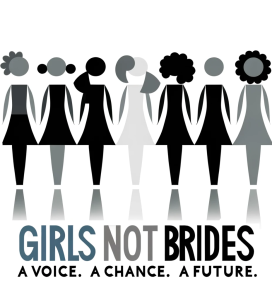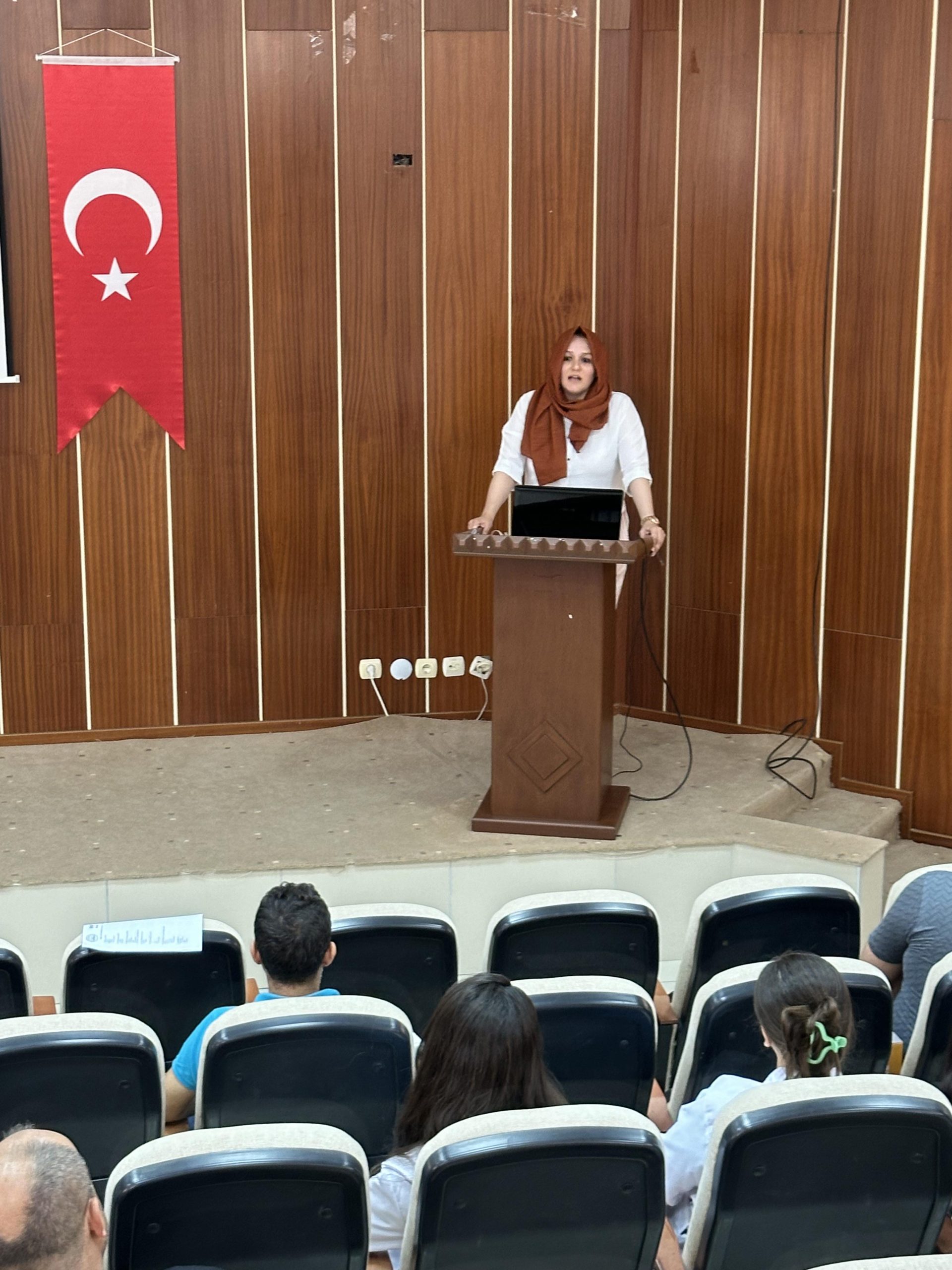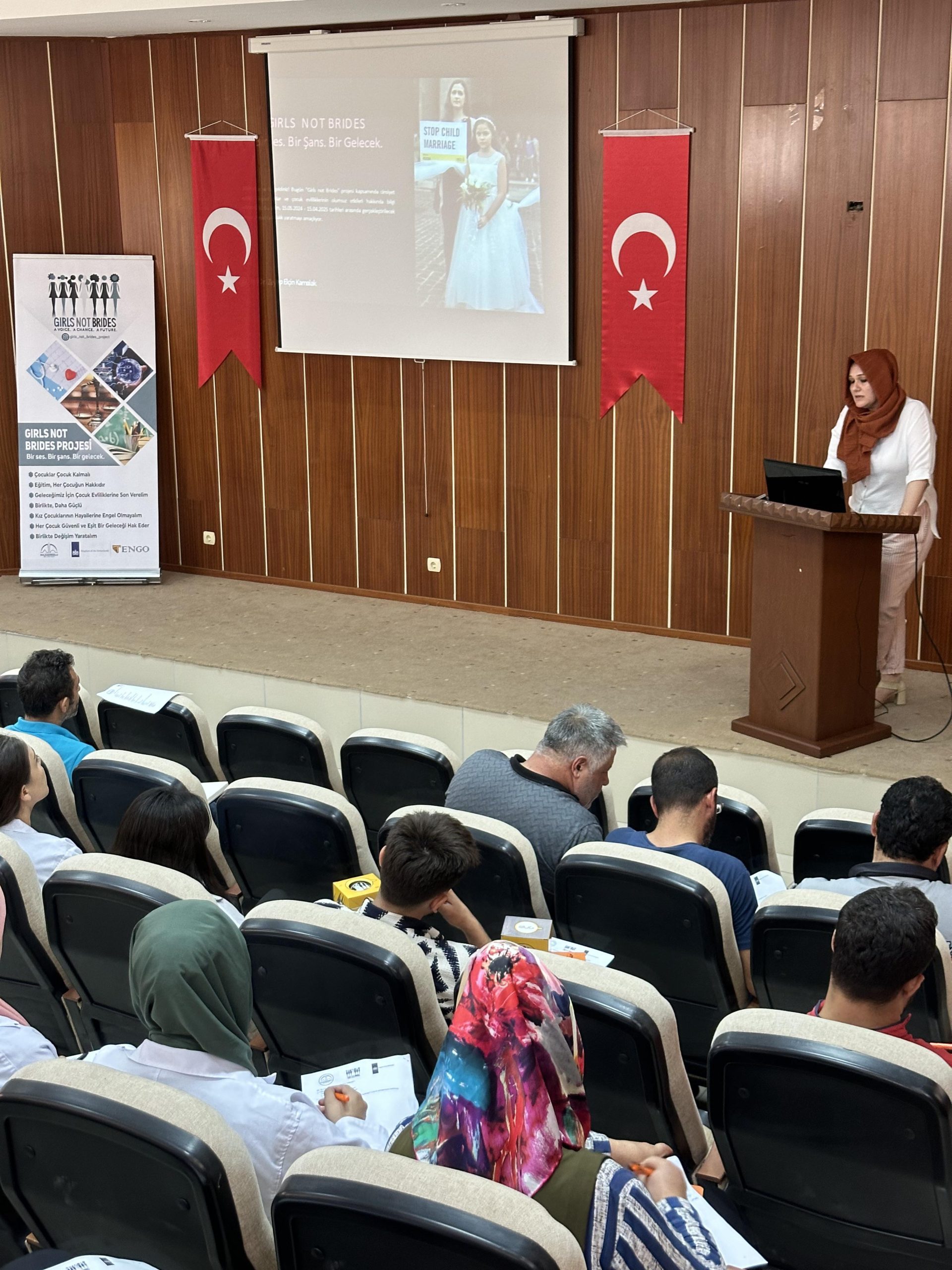
Project Title: Girls not Brides
Grant Provider: The Embassy of the Kingdom of the Netherlands
Grant Programme: The Human Rights Fund
Project Number: 4000007102
Start: 15-10-2023
Finish: 15-04-2025
Project status: Completed
Duration: 18 Months

PROJECT SUMMARY
Consortium Members:
Lead Applicant: Dulkadiroğlu Municipality (Türkiye)
Partners:
• Trend Education NGO (Türkiye)
• Kahramanmaraş Sütçü İmam University (Türkiye)
Introduction:
The “Girls not Brides” Project is a multi-stakeholder education and capacity-building initiative developed to prevent the forced early marriages of girls and to increase societal awareness on children’s rights and gender equality. Supported by the Human Rights Fund of the Embassy of the Kingdom of the Netherlands, the project is implemented in the Kahramanmaraş/Dulkadiroğlu region through the cooperation of local government, university, civil society, and international partners.
The project aims to mobilize the entire community against the harmful effects of child marriage and to protect and empower the rights of girls.
Target Groups:
• Girls (Aged 10–17): Both Turkish and Syrian girls are included as the primary target group of the project.
• Parents: Awareness-raising activities have been carried out specifically with the parents of girls.
• Educators and Professionals: Teachers, social workers, and individuals who work directly with children.
• Local Authorities and Community Leaders: Decision-makers such as neighborhood heads (muhtars), imams, and public officials have been targeted.
Objectives:
SO1. Increase Awareness of Girls’ Rights
Raise the level of knowledge among target groups, especially girls and their parents, about children’s rights and foster awareness from a fundamental human rights perspective.
SO2. Build Social Awareness About the Harms of Child Marriage
Create awareness through educational and media activities that explain the psychological, sociological, and legal impacts of child marriage on individuals, families, and society.
SO3. Strengthen the Understanding of Gender Equality
Support a shift in thinking among all target groups with content that questions traditional gender roles and promotes an equality-based approach.
SO4. Enable Local Actors to Play a More Active Role in the Field of Children’s Rights
Conduct capacity-building activities aimed at transforming the attitudes and behaviors of local decision-makers such as muhtars, teachers, imams, and public officials regarding child marriage.
SO5. Initiate Lasting Behavioral Change Through School-Based Practices and Media Campaigns
Support the formation of new social norms against child marriage through educational modules, social media work, and face-to-face school visits.
Implementation:
WP1: Project Management and Coordination
WP2: Development of Educational Modules and Community Mobilization Activities
WP3: Interactive Group Sessions and Advocacy Efforts
WP4: Digital Materials and Media Activities
WP5: School Visits and Youth-Based Activities
WP6: Local and International Dissemination and Cooperation
Results:
R1. Inclusive and Effective Educational Programs Delivered
Through eight different training sessions organized within the project, a total of 320 participants including teachers, parents, youth, and social workers were reached. The training sessions focused on core topics such as children’s rights, gender equality, and the harms of child marriage. Pre- and post-surveys revealed that participants gained significant knowledge and awareness.
R2. School-Based Gender Movement Initiated
Comprehensive activities and content were developed to be implemented in 15 different schools. These efforts aimed to raise awareness among 1,000 students about children’s rights, equality, and early marriage. The materials were structured to be sustainably used by teachers.
R3. Strengthened Community Engagement and Raised Local Awareness
Local activism events challenged social norms surrounding child marriage. The feedback from face-to-face meetings indicated that the local community began to think about and take action on this issue. Information sessions held in neighborhoods ensured the inclusion of the public in the process.
R4. Mass Outreach Through Media and Visual Materials
The project reached wide audiences through 5 opinion columns, 5 bulletins, numerous social media posts, and the distribution of 1,200 posters/brochures. Campaigns conducted especially on Instagram proved effective in raising digital awareness.
R5. Advocacy Process Initiated for Decision-Makers
Meetings held with local leaders marked the first steps toward aligning project outcomes with institutional policies. The final conference and advocacy meetings aim to ensure the active participation of local public institutions, muhtars, and opinion leaders in the process, thereby fostering institutional sustainability.







